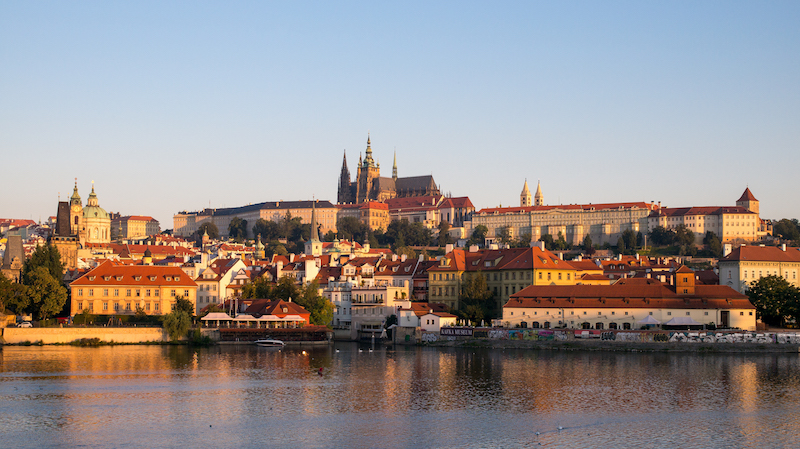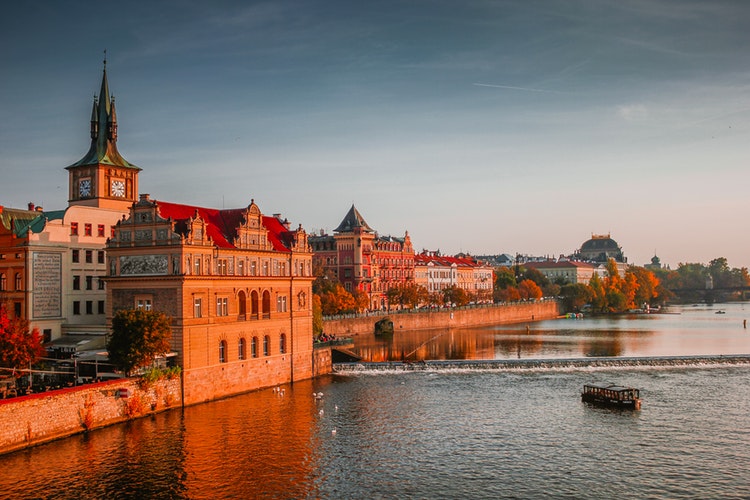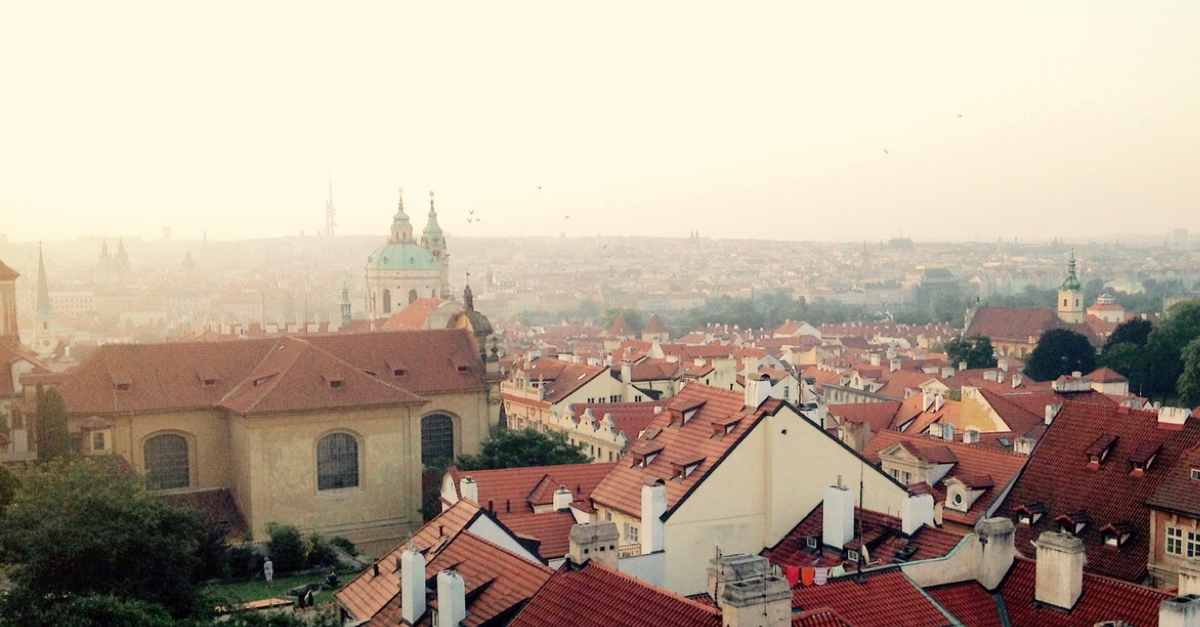
Study in Czech Republic
Last edited on 05 Mar 2026
Welcome to Czech Republic!
The Czech Republic is located in the heart of Europe and boasts a unique natural and cultural wealth. The total area of the country is 78,866 square kilometers and its population is around 10.4 million people. The Czech Republic shares borders with Germany, Poland, Austria and the Slovak Republic, and its capital city is Prague. It is a parliamentary democracy and has been an EU member state since 2004. The modern day Czech Republic is known as much for scientific research and development, as its impressive history and culture. Over the last decade Czech Science has made revolutionary discoveries and inventions, and developed innovative procedures in several areas, including the treatments of HIV and Hepatitis B, Gamma Radiation research, and the development of Memrec – a computer controlled by eye movement – by scientists from the Czech Technical Institute of Prague.
The Czech educational system is considered to be one of the best in the world according to the Program for International Student Assessment (PISA). In addition, Czech higher education institutions offer a wide variety of study programs taught in English and other foreign languages specifically designed for international students. In fact, over 30000 international students chose to study in the Czech Republic every year, whether as part of an exchange program or as free movers.
Today, the Czech Republic is an increasingly popular destination for international study, with over 39,000 foreign students currently enrolled at its universities. EU statistics released in 2014 listed it as the 12th most popular destination for Erasmus students in Europe. There are certainly many perks for those choosing to study in the Czech Republic: well-esteemed universities, affordable tuition fees and living costs, and last but not least, a vibrant and colorful cultural life.
Higher Education System
Czech higher education dates back six hundred years. In 1348 Emperor Charles IV founded a university in Prague, which is the oldest academic institution in Central Europe - it is now called the Charles University. At present, the Czech higher education system includes 26 public, 2 state and 45 private institutions, at which nearly 40,000 foreign students are enrolled. The bulk of internationally mobile students in the Czech Republic come from neighboring Slovakia. Higher education institutions form the highest level of the Czech education system. They offer accredited degree programs at three levels: Bachelor, Master’s and Postgraduate. The main medium of instruction is Czech, however the range of programs offered in foreign languages (mainly in English) is expanding in order to cater for international students.
Universities in Czech Republic
Student Cities in Czech Republic
Prague
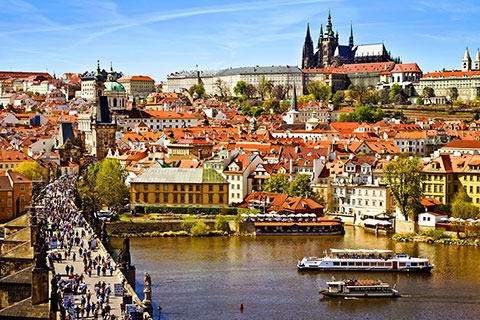
The country’s capital, Prague is without a doubt one of the most beautiful cities in Europe. This “New Jerusalem”, as it was once called, attracts millions of visitors from around the world each year. Highlights include its striking castle, UNESCO-listed medieval Old Town, and thriving arts scene, museums and nightlife. Prague is currently ranked joint 39th in the QS Best Student Cities index, reflecting the city’s large and internationally diverse student community, strong reputation among local and international recruiters, and relatively low study and living costs.
Prague is home to many of the country’s best-reputed universities, including two which rank among the world’s best: Charles University (currently ranked joint 302nd in the world) and the Czech Technical University in Prague (501-550).
Brno
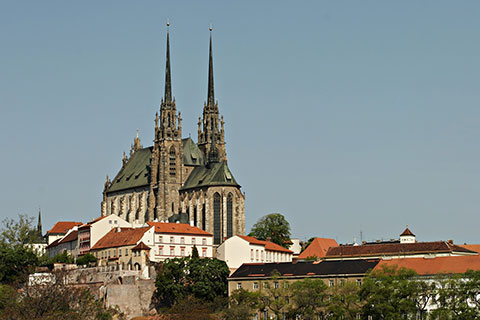
The second largest city in the Czech Republic, Brno is the historical capital of the Moravian part of the Czech Republic. Brno will most certainly charm you with its medieval fortresses and castles, full of mysteries and providing material for numerous local legends. The city is also famous for its Brno Exhibition Centre, which is one of the largest exhibition centers in the world. Brno has a vibrant cultural life, with various museums, theatres and galleries located in the city. Although now very much a modern city, it’s also preserved many of its traditions, folklore, folk music, festivals and the traditional Moravian costumes. Brno was a new entry in the Best Student Cities index in 2016 at 73rd place.
Brno is also an important center of higher education, with 13 universities located in the city and about 90,000 students. Some of the highest ranked Czech universities are in Brno, including Masaryk University and Brno University of Technology, both of which feature in the QS World University Rankings 2016/17.
Ostrava

Ostrava is the third largest city in the Czech Republic, located close to the Polish border. A major industrial hub, formerly nicknamed the “steel heart of the republic”, it has in recent years been reborn as one of Europe’s relatively unexplored treasures. Attractions include the beautiful cathedral, medieval castle, the country’s largest mining museum and the Vítkovice area, through which visitors can explore the region’s rich industrial heritage. The city is also host to the internationally famed music festival Colours of Ostrava (July), and Ostrava Days of New Music (every second year in August), while its growing nightlife and culinary scenes are finding a focal point in the lively Stodolní Street.
Ostrava is home to several well-respected universities, including the University of Ostrava and the Technical University of Ostrava.
Application, Fees and Visas in Czech Republic
Applying to study in the Czech Republic
The main requirement for applying for a bachelor’s degree in the Czech Republic is the completion of a full secondary general education. If you apply for a master’s degree, you will be assessed based on your undergraduate qualification; if you apply for a doctoral degree (PhD), you’ll be expected to have completed a relevant master’s degree.
Students may apply for several courses at various institutions and faculties. The deadline for submitting applications is usually the end of February or March. Most higher education institutions offer the option of applying in electronic form, online. At most universities, applicants are required to sit entrance examinations, which are usually held between June and September.
Assessment methods vary from university to university, and also depend on the field of study. The European Credit Transfer System (ECTS) is used by most universities in the Czech Republic, making it easier for students to transfer course credits both within the country and also more widely within Europe.
Visas to study in the Czech Republic
Good news for some of you: the Czech Republic is a member state of the European Union, and students from other EU countries don’t need a visa in order to live and study here. All you need is a valid ID or passport and an acceptance letter from your university. For students coming from outside of the EU, a student visa is required. Contact the Czech embassy in your country for guidelines on specific visa requirements, as these vary from one country to another.
Fees and funding
Higher education at all public universities in the Czech Republic is free of charge for students of all nationalities – as long as you are willing and able to study in the Czech language. If you wish to enroll in a foreign language course, additional fees may apply. For example, the fees for English language programs average around CZK 108,334 (~US$4,500). Students should also expect to pay some fees for administration, and for any additional programs completed. Private institutions have different tuition fees, typically in the range of US$2,000-15,000 per year.
Life in the Czech Republic is generally much cheaper than in most Western countries. Expenses covering food, accommodation and public transportation should total around US$350-750 per month, though of course it depends on the lifestyle you are used to and your own budget. Prices can also vary depending on the city you choose to study in. However, it is safe to say that students coming from Western Europe or the US will be surprised by the affordable and yet high-quality lifestyle.
To support yourself whilst studying, you might like to find a part-time job. Students from the EU/EEA and Switzerland do not need an employment permit, and students from other countries will need employment and residence permits. However, no employment permit is necessary from foreign students up to the age of 26 whose working days do not exceed seven successive calendar days or a total of 30 days within a calendar year.
Another way to help your funds is to find a scholarship – it’s always worth checking to see if your chosen university offers scholarships that would suit you.
Fast fact
- A landlocked country with area of 78,866 sq km
- Capital: Prague (Praha in Czech)
- Borders with Germany, Poland, Slovakia and Austria
- Population: 10.5 million (2015 estimate)
- Continental climate with warm summers, chilly autumns and cold winters
- Part of the Austro-Hungarian Empire until the end of the World War I
- In 1918 Czechoslovakia was established, splitting into the Czech Republic and Slovakia at the end of 1992.
- Today the Czech Republic is a parliamentary democracy.
- Official religion is Catholicism, but more than 50% of the population describe themselves as agnostic or atheist.
- Official language: Czech, which belongs to the western Slavonic family




